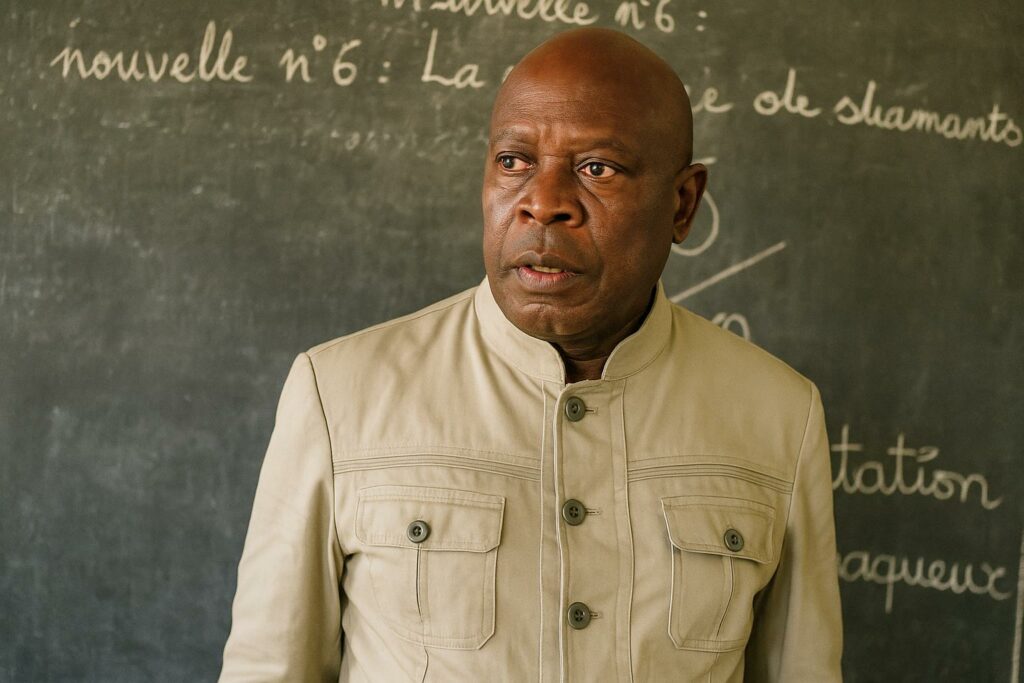A renewed call for scholastic diligence in Pointe-Noire
In the shaded courtyard of the departmental headquarters, the director for Primary, Secondary Education and Literacy, Frédéric César Bayonne, distilled his message into one unapologetically simple maxim: “Success lies at the end of persevering effort.” His interview, granted on the eve of the 2025-2026 rentrée, reached well beyond ceremonial encouragement. It was a summons to pupils to recognise themselves as “masters of their destiny” and to teachers to apply themselves with equal rigour. By explicitly linking destiny, discipline and diligence, Bayonne knitted a narrative of responsibility that enlists every classroom actor, from the chalk-wielding instructor to the parent supervising homework by candlelight.
Discipline and capacity-building as pedagogical cornerstones
Pointe-Noire’s most recent examination cycle has already demonstrated that disciplined strategies pay dividends. The département posted a 65.28 % pass rate at the Brevet d’étude du premier cycle, up from 60.54 % the previous year. Bayonne refuses, however, to accept plateaued ambition. His plan rests on two pillars: a stricter school environment and an aggressive programme of directed studies. Discipline, he argues, is not an exercise in repression but “the inexorable route to sound performance”. Capacity-building, meanwhile, will materialise in after-class sessions designed to place candidates under examination-type conditions long before the invigilator’s bell rings.
Private school oversight and the quest for curricular coherence
Parents have voiced frustration at private institutions whose prospectuses promise a French syllabus that is not implemented once the school year unfolds. Bayonne concedes that such discrepancies have flourished “in the paper realm”, but he now places them squarely under administrative scrutiny. A comprehensive census of every private establishment is under way, aimed at aligning actual teaching with stated programmes and at ensuring that primary-level pupils squarely target the Congolese Certificat d’études primaires élémentaires rather than illusory foreign examinations. The initiative is expected to temper tuition inflation by sharpening competition on the basis of quality rather than marketing bravado.
Infrastructure projects aligning with demographic expansion
Behind curricular reform lies the structural reality of a city whose demographic curve outpaces available classrooms. Government strategy therefore converges on expanding the school map through new builds. The flagship project, a lycée in the burgeoning suburb of Côte-Matève, illustrates both ambition and constraint: the blueprints are ready, yet financing delays have slowed ground-breaking. Parallel projects in Louessi and Tchibala—districts where housing estates unfurl faster than public amenities—signal that Pointe-Noire’s planners intend to weave education infrastructure into the city’s growth fabric rather than append it belatedly. For Bayonne, bricks and mortar are not optional extras but pre-conditions for the inclusive schooling that the Republic of the Congo places at the heart of its development trajectory.
Literacy advances underscore national momentum
While secondary education draws headlines, the director underscores a quieter victory: literacy. Pointe-Noire now hosts fifteen centres devoted to adult education and reschooling—entities that scarcely existed a generation ago. The multiplication of these centres suggests that the city’s learning ecosystem is no longer age-exclusive. As adults decode letters for the first time, they also decode citizenship, employability and dignity, feeding a virtuous cycle that classroom statistics alone cannot capture. Bayonne reads this expansion as evidence that the government’s literacy agenda is taking root and that education policy, rather than ending at the school gate, accompanies citizens across their lifespan.
À retenir
Bayonne’s exhortation crystallises a widening consensus: academic results, infrastructure and social accountability are inter-locking gears. The 4.74-point leap in the BEPC pass rate serves both as proof of progress and as a benchmark to surpass. Oversight of private curricula seeks to protect parents’ investment and to embed transparency in a market segment sometimes prone to opacity. New school construction embodies a strategic response to demographic pressure, ensuring that the Republic’s commitment to universal education is etched not merely in policy texts but in concrete walls and viable classroom ratios.
Le point juridique/éco
From a regulatory standpoint, the forthcoming private-school census may evoke fresh compliance obligations. Establishments that advertise foreign programmes without accreditation could face sanctions ranging from administrative warnings to temporary suspension, a prospect that heightens legal certainty for families while rewarding institutions that respect the national framework. Economically, the planned infrastructure pipeline—if coupled with local procurement—could stimulate job creation in construction and teaching alike, reinforcing Pointe-Noire’s role as a growth pole. The underlying equation is clear: disciplined classrooms supported by transparent governance and solid buildings translate into a skilled, literate workforce capable of sustaining the city’s wider industrial and port ecosystem.

